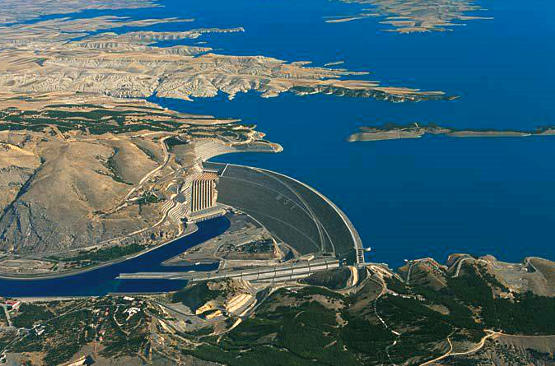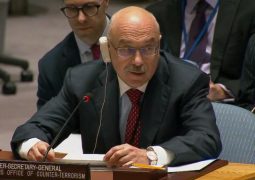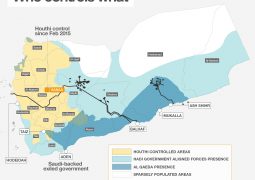Egypt says no ‘breakthrough’ with Ethiopia over Nile dam

FILE – In this June 28, 2013 file photo, construction work takes place, at the site of the Grand Ethiopian Renaissance Dam near Assosa, Ethiopia. Egypt says negotiations over an upstream Nile dam being built by Ethiopia have not led to any “breakthrough.” Foreign Minister Sameh Shoukry told reporters that talks over the $5 billion Grand Ethiopian Renaissance Dam have stopped for more than a year before restarting in Cairo on Sunday, Sept. 15, 2019. (AP Photo/Elias Asmare, File)
More
CAIRO (AP) — Egypt on Sunday said negotiations over an upstream Nile dam being built by Ethiopia have not led to any “breakthrough.”
Foreign Minister Sameh Shoukry told reporters that talks over the $5 billion Grand Ethiopian Renaissance Dam had stopped for more than a year before restarting in Cairo earlier in the day.
The long-running dispute centers on the filling and operation of what will be Africa’s largest hydroelectric dam.
Egypt fears the dam could reduce its share of the Nile River which serves as a lifeline for the country’s 100 million people. Ethiopia, which has roughly the same population size, maintains that the dam will help its economic development.
Shoukry said he hopes that Egypt, Sudan and Ethiopia can agree to a timetable to reach a deal over the soon-to-be-completed dam.
Shoukry said his county “respects Ethiopia’s right to development” but “without affecting Egypt.”
He said Egypt has been ready to reach a settlement, but warned against any side “to attempt to establish a de facto situation on the ground” without an agreement.
In May last year, Egypt, Ethiopia and Sudan reached an agreement to set up a scientific study group to consult on the filling of the dam. But no progress was reported since then.
Shoukry said Sunday’s talks were “scientific” and that Egypt was open for further discussions.
The dam is now more than 60% finished, and Ethiopia hopes to become a key energy hub in Africa upon its completion. The dam will generate about 6,400 megawatts, more than doubling Ethiopia’s current production of 4,000 megawatts.
Egypt received the lion’s share of the Nile waters under decades-old agreements seen by other Nile bastion countries as unfair
- Previous Damage from Iran-linked drone attack on Saudi oil facility captured in satellite images
- Next Blasphemy accusation in Pakistan sparks ransacking of Hindu temple, school
















